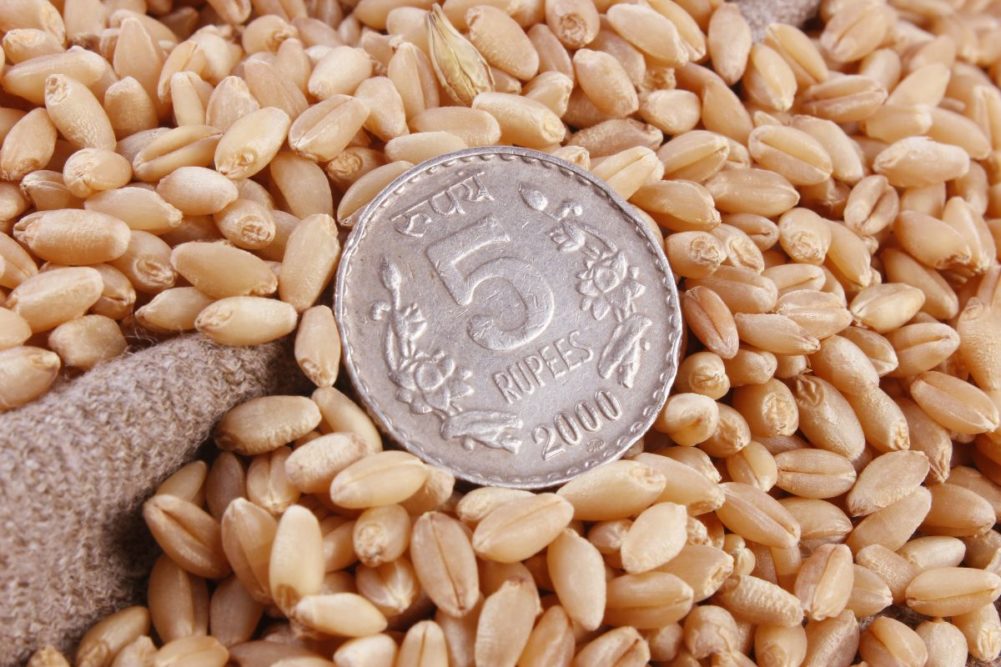NEW DELHI, INDIA — India is on the verge of offering 2 million to 3 million tonnes of wheat from dwindling state reserves to bulk consumers such as flour millers and biscuit makers as it attempts to cool soaring prices sparked by lower crop yields this year, Reuters reported, citing a pair of government sources.
Wheat prices have surged in India this year after a sudden rise in temperatures hurt yields and Russia’s invasion of Ukraine on Feb. 24 prompted an increase in exports. India, the world’s second-largest wheat producer, banned exports in May, but domestic prices remain high.
As open market prices rose above the rate at which the government buys the grain from domestic farmers, state purchases of wheat have fallen by 53% this year to 18.8 million tonnes. India’s state wheat reserves have fallen to a six-year low.
A government source told Reuters the plan to unload wheat on the open market is necessary to control prices so India can afford a more robust procurement effort when government purchases resume in March and April.
At the start of October, wheat stocks in state warehouses totaled 22.7 million tonnes, down from 46.9 million tonnes a year earlier. At the time, the government pronounced stocks sufficient to intervene in the market if necessary.
The government buys rice and wheat from farmers at state-set prices to run the world’s biggest food welfare program for about 800 million people in the nation of 1.4 billion.
India’s falling wheat reserves and rising prices of the staple contrast to overflowing granaries that allowed the country to export a record 7.2 million tonnes of the grain in the fiscal year to March 2022.
In a November report, the Foreign Agricultural Service of the US Department of Agriculture forecast India’s 2022-23 marketing year wheat production at 99 million tonnes, compared with 109.58 million tonnes the previous year. Exports were predicted to fall to 5.5 million tonnes for wheat and wheat products.
Ending stocks were expected to be about 9 million tonnes, less than half the 19.5 million tonnes in 2021-22.
“Assuming some offtake of government-held wheat stocks for open market sales in the coming months, FAS New Delhi forecasts marketing year 2022-23 ending stocks to decline to 9 million tonnes,” the report said. “This lower volume, however, remains sufficiently above the government buffer stocks norm of 7.5 million tonnes.”





